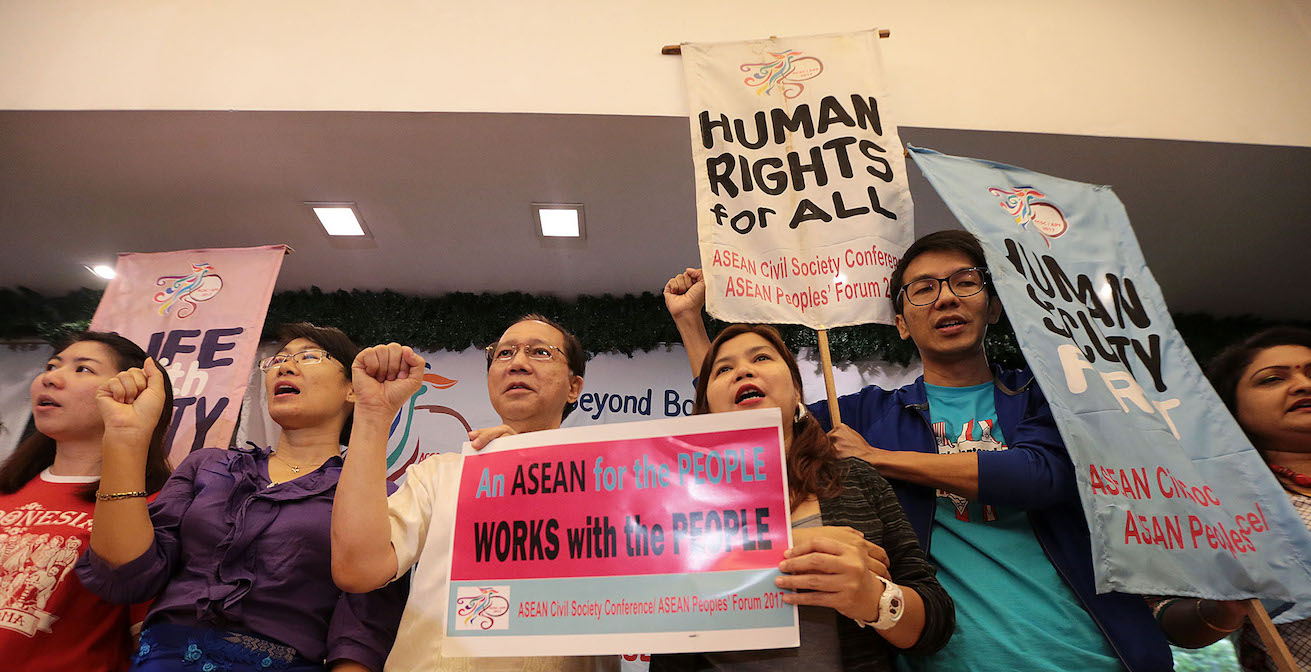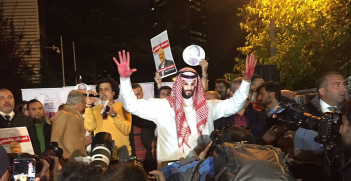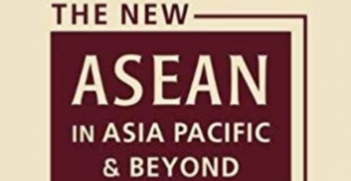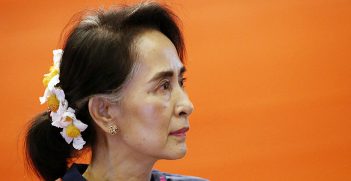Human Rights Should be a Focus of ASEAN-Australia Summit

Australia has recognised that an international rules-based order grounded in human rights is in its interests, yet it remains mute in its engagement with ASEAN leaders hostile to the promotion of human rights.
This weekend, Australian Prime Minister Malcolm Turnbull will host government leaders from the 10-member Association of Southeast Asian Nations (ASEAN) in Sydney at the ASEAN-Australia Special Summit. The Australian government views ASEAN as an important economic, security and political partner. As global power dynamics shift, with China becoming more assertive across the region, Australia has decided it is strategic to pursue closer ties with ASEAN countries.
Many ASEAN countries have increasingly serious human rights problems. At a high-level summit of this kind, it would be a major setback for citizens of ASEAN countries for the Australian government to gloss over human rights issues in hope of winning over the region’s leaders. Instead, Australia should put its values as a rights-respecting democracy at the centre of its relations with ASEAN. Rather than just focusing on good relations with ASEAN leaders, in the face of China’s threat to human rights in the region, Australia can offer something different by focussing on the needs of the people of ASEAN.
Promoting rights advances Australia’s interests
The Australian government frequently sidelines human rights at summits and other meetings with world leaders. The government rarely raises human rights issues publicly, ostensibly because it does not want to be seen as ‘lecturing’ other countries. This may be a legitimate concern, but it is often a convenient excuse for silence and inaction while tacitly accepting ASEAN’s anachronistic insistence on “non-interference in the internal affairs” of other countries. This notion is contrary to international human rights law, the universal application of which places demands on all UN member countries to promote human rights. Australia has also undermined its global standing by being reluctant to raise issues publicly due to shortcomings in its own human rights record, especially regarding treatment of refugees.
Robust engagement on democracy, governance and human rights is crucial for the people of ASEAN and the development of ASEAN countries. For example, the proliferation of extrajudicial killings in the Philippines’ war on drugs can be attributed in part to the weakness of the country’s democratic institutions, which would benefit from international support. But Australia’s quiet diplomacy sends a message to the people of the Philippines and other ASEAN countries that Australia’s government does not consider upholding their rights a priority.
As the oldest democracy in the region, with robust public institutions, a free media and an adherence to the rule of law, Australia has much to share with ASEAN governments. In the past, Australia has modestly but effectively led regional coalitions, including on the Paris Peace Accords in Cambodia in the 1990s and on Timor-Leste in 1999. Australia should also not shy away from its own human rights problems and failures, particularly on refugee protection, an issue that is dealt with poorly across the entire ASEAN region.
ASEAN leaders presiding over human rights abuses are under no illusions about their own rights records. They understand that democratic governments will challenge them, and they are awarded an unexpected bonus when countries such as Australia give them a free pass.
The way forward
If the ASEAN-Australia summit lacks a strong emphasis on rights, Australia will be sending the message that serious abuses by ASEAN leaders against their citizens will not have a harmful impact on their relationship with Australia.
A better approach would be for Australia to link trade, security and diplomatic rewards more explicitly to concrete improvements on human rights: for instance, by clearly stating what the costs are for governments that do not implement reforms. In practice, this would mean informing ASEAN governments that closer security and trade engagement will come when political prisoners are released, serious human rights abuses are investigated and abusive laws are reformed. More specifically, Australia should tell Myanmar that it will impose military sanctions if the government does not end atrocities against the Rohingya and grant access to the UN-mandated international fact-finding mission. Australia should also indefinitely suspend military exercises with Thailand and Cambodia, which are effectively political endorsements of Prayut’s and Hun Sen’s abusive governments.
One simple and principled step would be for Australia to invite ASEAN-based civil society organisations to participate in ASEAN-related summits. Relegating human rights and civil society to the margins, as sideline issues, is a morally hollow diplomatic exercise. Just as Australia is involving business leaders and security analysts, it should make a concerted effort to intensify engagement with civil society organisations in ASEAN countries.
Australia should demonstrate that it supports the strengthening of institutions that safeguard basic rights, such as independent courts and national human rights bodies, as well as civil society groups that promote the human rights standards and values those institutions are meant to uphold.
The best way for Malcolm Turnbull to send that message would be to speak publicly about the very serious human rights problems throughout ASEAN, offer assistance in genuine reform efforts and press ASEAN leaders to work directly with civil society groups and the general public to build rights-respecting democracies.
Elaine Pearson is the Australia director at Human Rights Watch. Based in Sydney, she works to influence Australian foreign and domestic policies in order to give them a human rights dimension. Follow her on Twitter @pearsonelaine.
Elaine Pearson will be discussing what role Australia can play in advocating for human rights across South East Asia at AIIA NSW on 20 March. Get tickets here.
This article is published under a Creative Commons Licence and may be republished with attribution.





